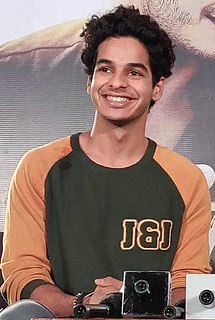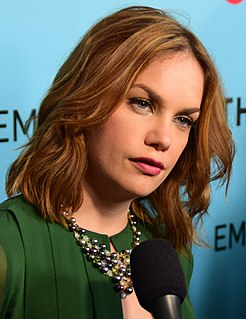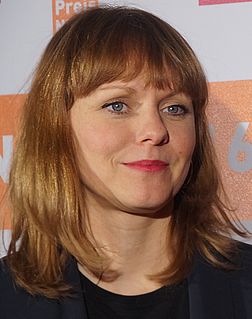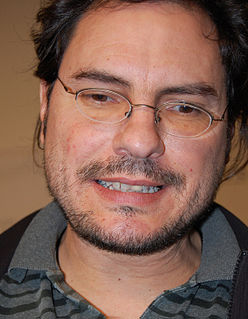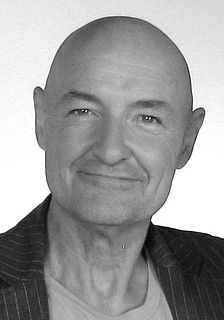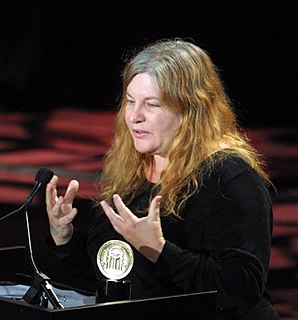A Quote by Melissa Leo
I'm very, very serious about what I do. I think there are a lot of people out there sort of thinking it's anybody's game. You know, "You pick up a camera and you make a movie." My experiences over the years have taught me there's a lot more than that to making a film - there's also getting the film seen, and all kinds of complex realities.
Related Quotes
I think a lot of people go into filmmaking thinking, "How can I make a career?" And so when they make their first film, they make it thinking, "Well, this'll be the one that gets me to the place where I can make the second film the way I want to make it, and that'll get me to the place where I can make $100 million on the third film." And I thought, "Well, if I put sustainability at the bottom of my priority list, then what opportunities is that going to free me up to pursue?" And that's what I've always done.
I'd never read 'Prince Caspian'. I watched it and loved that film. Everybody was talking about its lack of success; its relative success in comparison to the other film. It's a great film. It deserved to do a lot better than it did. It's very difficult to make a film that will match up to the first.
For me, it was always clear that Toni Erdmann is more a film about what globalization, capitalism, does with private relationships much more than making a "political" film. It's more interesting to raise questions, because I don't feel in a position to "make a statement" with the film. Toni Erdmann comes from a completely different generation then his daughter, it's the post-war generation, they were very politically engaged. They raised their children with a lot of human worldviews, sent them out in the world believing in a world without borders.
I wanted to be a playwright in college. That's what I was interested in and that's what I was moving toward, and then I had the lucky accident of falling in love with film. I was 19 or 20 that I realized films are made by people. Shooting digitally became cheaper and better. You couldn't make something that looked like a Hollywood film, but you could make something through which you could work out ideas. I was acting, but I was also conceiving the plots and operating the camera when I wasn't onscreen. I got very unvain about film acting, and it became a sort of graduate school for me.
When I was writing the script, I knew didn't want to make a sports movie. I was very clear that I wanted to make a sibling rivalry story. So when I was writing the script, the football was getting in the way of the drama. One day, I saw Michael Haneke's Funny Games, which is probably the most violent film I've ever seen - but the violence is off camera. When I finished watching the film, I said, 'Hey, that's what I have to do.' Haneke gave me this solution.
Film and TV is a very hard profession to enter into if you don't have the ability to take a long period of time without making money so you can write, direct or raise financing, or work your way up, often with unpaid internships. It's hard to get into without a lot of connections. You end up with a lot of white people from privilege making films. So we're seeing a lot of the same kinds of stories.
'Hereditary' is unabashedly a horror film, whereas 'It Comes at Night' was a lot of things: it was a thriller; it was a postapocalyptic drama. It was a slow-building, very dark movie about relationships. 'Hereditary' is also about relationships, and I hope it functions as a vivid family drama, but it is also very much a horror film.
I think when I got drawn to film, I didn't know it was a business. I mean, like most filmmakers, I probably saw more films than a lot of people when I was a kid. But I watched them on TV as well. I was no purist about it. I spent lots of time in movie theaters, but I also watched a lot of films on TV.



